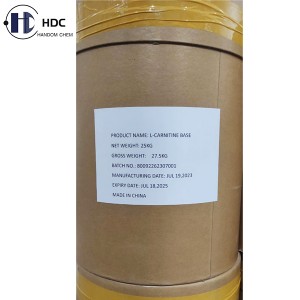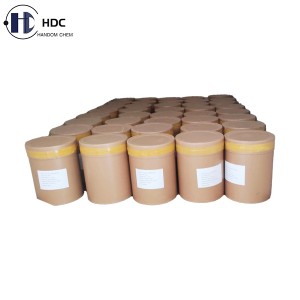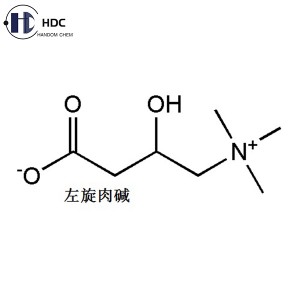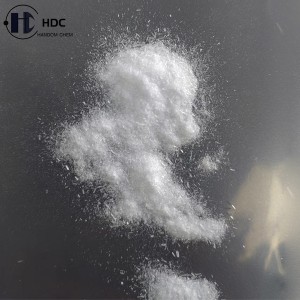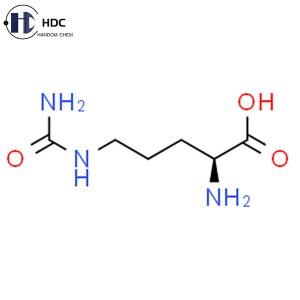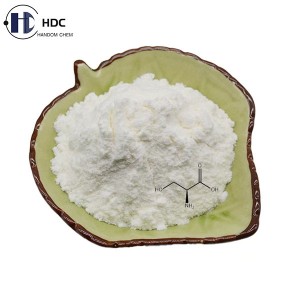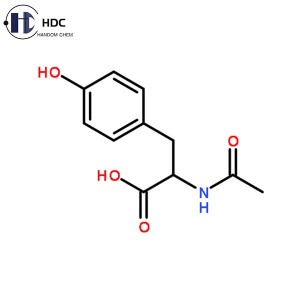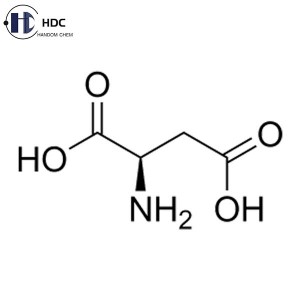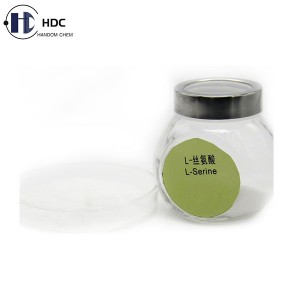L-Carnitine
Brief Introduction:
L-carnitine, also known as L-carnitine and vitamin BT, has a chemical formula of C7H15NO3, it is an amino acid-like substance that promotes the conversion of fat into energy. The pure product is white lens or white transparent fine powder, which is extremely soluble in water, ethanol and methanol, slightly soluble in acetone, and insoluble in ether, benzene, chloroform and ethyl acetate.
L-carnitine easily absorbs moisture, has good water solubility and water absorption, and can withstand high temperatures above 200°C, it has no toxic side effects on the human body. Red meat is the main source of L-carnitine, the human body can also synthesize it to meet physiological needs. It has various physiological functions such as fat oxidation and decomposition, weight loss, and anti-fatigue.
As a food additive, L-Carnitine is widely used in infant food, weight loss food, athlete food, nutritional supplements for middle-aged and elderly people, nutritional fortifiers for vegetarians, and animal feed additives.

Specifications of our L-Carnitine Base (Vitamin BT):
| Test Items | Specifications | Test Methods |
| Appearance | White crystalline powder | Visual |
| Identification | Meets the requirements | Chemical |
| Meets the requirements | IR | |
| Specific Rotation | -29°~ -32° | USP |
| pH Value | 5.5 ~ 9.5 | USP |
| Residue on Ignition | Not more than 0.5% | USP |
| Water | Not more than 4.0% | USP |
| Residual Solvents | Ethanol: Not more than 0.5% | GC |
| Acetone: Not more than 0.5% | GC | |
| Assay | 97% ~ 103% | USP |
| Heavy Metals | Not more than 10 ppm | USP |
| Lead (Pb) | Not more than 1 ppm | USP |
| Mercury (Hg) | Not more than 0.1 ppm | USP |
| Cadmium (Cd) | Not more than 1 ppm | USP |
| Chloride | Not more than 0.4% | USP |
| Arsenic (As) | Not more than 1 ppm | USP |
| Potassium (K) | Not more than 0.2% | USP |
| Sodium (Na) | Not more than 0.1% | USP |
| Microorganisms | Total aerobic microbial count: Not more than 1000 CFU/g | USP |
| Total number of moulds and yeasts: Not more than 100 CFU/g | USP | |
| Escherichia coli, Salmonella: Negative | USP |
Effects & Functions:
L-carnitine is a common weight loss aid that works by promoting fat metabolism and burning, thereby helping to reduce body fat and increase muscle mass. The effects of L-carnitine are mainly manifested in the following aspects:
1) Promote the metabolism of fatty acids: L-carnitine can promote the transport and metabolism of fatty acids within cells, thereby accelerating fat burning and reducing fat accumulation.
2) Improve muscle endurance and increase muscle mass: L-carnitine can improve muscle endurance and increase muscle mass, helping to improve the effect of exercise.
3) Promote cardiovascular health: L-carnitine can promote the health of the heart and blood vessels and reduce the risk of cardiovascular disease.
Packaging:
1kg/Aluminum Foil Bag, 25kg/Cardboard Drum or according to the specific requirements from customers.
Storage Conditions:
Preserved in unopened original containers in a cool dry place before using; kept away from direct sunlight, heat and moisture.
Shelf Life:
24 months if stored under above mentioned conditions.



